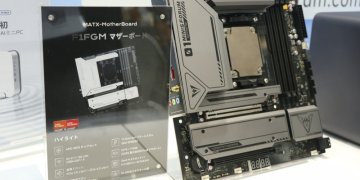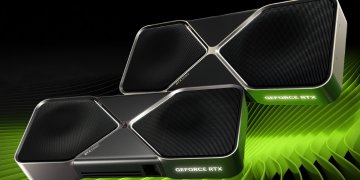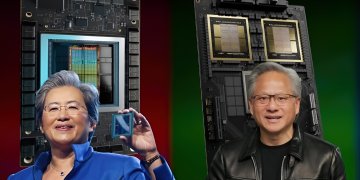Chinese memory manufacturers are making significant strides in the HBM (High Bandwidth Memory) arena, with yet another local firm announcing they’re starting trial production for the HBM2 process.
In a noticeable shift, China is ramping up its efforts in the AI race, channeling full energy into the technology’s development, which is seen as crucial to national security. The sanctions imposed by the Biden administration haven’t dampened China’s drive; instead, they’ve spurred home-grown manufacturers into action, notably giants like Huawei. According to a report by Nikkei, Tongfu Microelectronics, a Chinese company, has kicked off trial production of HBM2, marking a substantial leap forward for the domestic industry.
It’s worth mentioning, though, Tongfu isn’t the lone ranger in this endeavor. Companies like CXMT and Wuhan Xinxin have also ventured into HBM production, demonstrating significant progress in both the DRAM and HBM sectors over recent months. Even if Tongfu Microelectronics rings a bell for the first time, they have quite a reputation in the market, largely because of their partnership with AMD, where Team Red holds a stake.
Besides that, Tongfu ranks as the world’s third-largest provider of semiconductor packaging and test services. However, delving into the HBM territory is a new venture for them. They likely rely on crucial memory and semiconductor components sourced externally, while they bring their expertise into assembling the HBM2 die.
Interestingly enough, Tongfu is rumored to be among the suppliers for Huawei’s AI processors, although it’s unclear if their HBM has been formally integrated yet. While HBM2 technology is somewhat dated, given that global heavyweights are now advancing to HBM4, it’s a notable achievement for China. Despite facing sanctions, domestic tech development is surging ahead. It seems only a matter of time before China aligns with global industry standards, and the recent DeepSeek AI controversy is a testament to this upward trajectory.














































